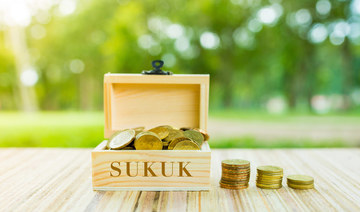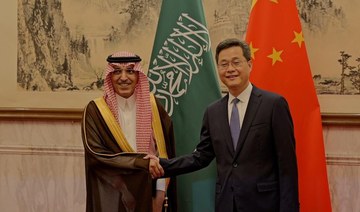LONDON: Some of the world’s most advanced economies may club together to sell growth-linked bonds, creating a market that could help avert future debt crises, sources familiar with discussions among Group of 20 policymakers said.
Countries like Britain and Germany could breathe life into an academic theory intended to offer poorer, emerging economies some respite if they fall on hard times.
Growth-linked bonds allow a government’s debt repayments to fluctuate during economic cycles — meaning it pays less if its revenues are hit by recession.
The only existing such bonds — sold by Argentina, Greece and most recently Ukraine — emerged from debt restructurings, as a way of coaxing creditors to accept writedowns. That has created a stigma which has put off other investors and borrowers alike.
But one source familiar with discussions between Group of 20 finance ministers and central bankers said developed countries are being urged to take the lead in creating a market for growth-linked bonds that will help improve their image.
A second source said, “It is clear that emerging markets, at least absent leadership from elsewhere, are not going to be first movers here ... there could be a case for collective action.” The G20 discussions were at “early stages,” he said.
The Bank of England has been pushing the idea in recent years. It has published numerous papers, organized workshops and steered a market group to develop a legal framework or “term sheet,” which is being tested with investors by the capital markets association ICMA.
Term sheets create a market standard, contributing to the widespread use of new instruments.
Sources said the Bank of England has also helped get growth-linked debt on the G20’s agenda. At a meeting of finance chiefs in July, the G20 called for further analysis of “state contingent debts, including GDP-linked bonds” and asked the International Monetary Fund to report on the subject in 2017.
For countries vulnerable to macroeconomic shock, the appeal of growth-linked debt is obvious. Most recently in early 2015, Greece proposed swapping debt held by its euro zone creditors for growth-linked bonds to help it break a vicious debt spiral.
But they can be a hard sell. Fund managers say they might struggle to match the returns on growth-linked bonds to the demands of their clients, who are used to the fixed-rate interest offered on most bonds.
The bonds also depend on economic data, which investors may or may not trust. Argentina, for example, spent years dodging payouts on its inflation-linked debt after reporting consumer prices that differed wildly from private estimates.
But Ali Abbas, who works in the debt policy division at the IMF, said the initial investor feedback on its review of growth-linked bonds had been promising.
“While noting the complexity of state-contingent instruments, some investors do appear to have interest in the idea of GDP-linked bonds and similar instruments, particularly because investors are looking for higher returns in an environment of record-low bond yields,” he said.
The IMF aims to complete the review early next year, in time for the G20’s spring meeting, Abbas said.
IDEAL SITUATION
Starla Griffin, a lawyer who worked with the Bank of England on the term sheet, said the issue of data integrity meant the first country to sell a GDP-linked bond must have a strong credit rating and be respected by investors.
“What this initiative is trying to do is to really try to get away from the stigma and show that in fact it is only the most credible issuers that can issue one of these,” Griffin said.
“The ideal situation would be to have the US, Britain and Germany issue and then a couple of emerging markets like Turkey and Mexico to create a basket.”
Those that are best-placed to issue, though, may have little incentive to do so.
Germany, the euro zone’s strongest economy, which takes over the presidency of the G20 next year, can raise long-term debt at negative yields, meaning investors effectively pay to lend to the government.
With its ageing population and commitment to balancing its budget, Berlin has in recent years taken a frugal attitude toward borrowing.
But in a sign even the most cautious of borrowers might be open to growth-linked debt, Germany’s central bank governor, Jens Weidmann, said in June that while many questions still need answering, growth-linked bonds are “an avenue worth exploring.”
And advanced economies may have some incentives. In Britain, for instance, monetary policy appears to be reaching its limits and the government is weighing fiscal stimulus to counter the effects of its vote to leave the European Union. But its high level of debt give it little room to act.
“The extra fiscal space that such GDP-linked bonds offer in the event of a downturn could be especially useful today, given the constraints of operating near the effective lower bound to policy interest rates,” the Bank of England said in a paper last month.
Rich countries may take lead in recession-proof debt project
Rich countries may take lead in recession-proof debt project

Pakistan to enhance production of indigenous petroleum products— minister
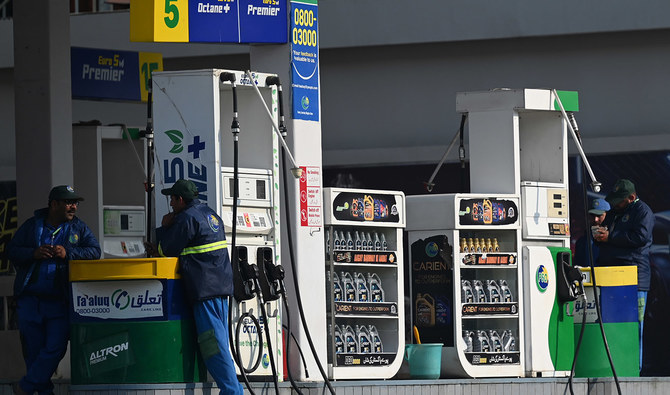
- Cash-starved Pakistan spends over $20 billion each year on petroleum imports to meet energy demand
- Pakistan welcomes foreign companies to invest in its oil and gas sector, says Petroleum Minister Musadik Malik
KARACHI: Pakistan wants to enhance the production of its indigenous petroleum products, Petroleum Minister Musadik Malik said on Wednesday, citing the financial burden that expensive crude oil imports have on the country’s fragile economy.
Cash-strapped Pakistan relies heavily on imported petroleum products as its energy demands grow. Struggling with a balance of payments crisis, high inflation and steep currency devaluation, Pakistan is looking to secure cheaper energy imports and find alternate ways to lessen the cost of power generation.
According to the Trade Development Authority of Pakistan (TDAP), the country’s indigenous oil production meets only about one-fifth of Pakistan’s current oil needs. The rest is met through high-cost imports.
Prime Minister Shehbaz Sharif has urged the government to turn toward renewable energy resources. Last month, he said the country currently imports oil worth $27 billion to meet its power and transportation needs, which puts a strain on the cash-strapped nation.
Speaking at the Pakistan Energy Symposium, Malik said it would be difficult to manage the country with such a huge energy import bill when Pakistan’s exports were around $30 billion.
“We want to first of all, produce as much of the petroleum products, including gas and crude, indigenously as much as possible,” the minister said, adding that the government has put blocks for bidding and is actively trying to attract global players in exploration activities.
Malik said the government is expediting oil and gas exploration within the country, adding that it welcomes foreign companies to invest in the sector.
“So, we are telling the world that Pakistan is open for business, our regulatory process, particularly the petroleum concession process is very dense and opaque,” he said.
He said investment processes and information about oil and gas exploration have been digitized and simplified to facilitate the government’s aims to enhance indigenous production of energy resources.
Malik advocated for increasing the utilization of Pakistan’s abundant renewable energy resources, pointing out that the country’s solar energy costs have significantly decreased.
Closing Bell: Saudi benchmark index edges up to close at 12,157
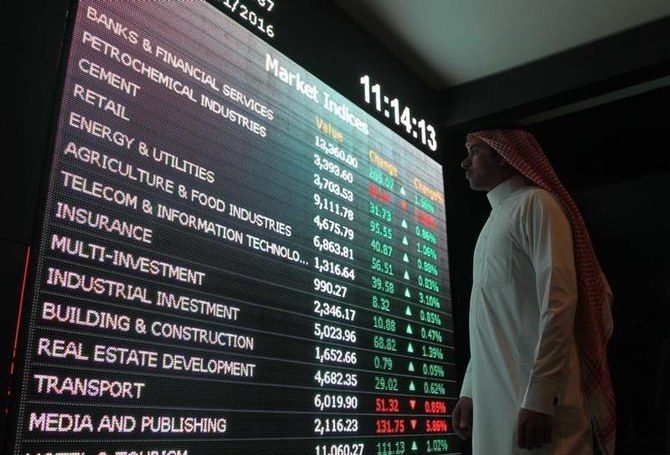
RIYADH: Saudi Arabia’s Tadawul All Share Index rose on Wednesday, gaining 34.55 points, or 0.28 percent, to close at 12,157.03.
The total trading turnover of the benchmark index was SR5.3 billion ($1.413 billion), as 54 stocks advanced while 136 retreated.
Similarly, the MSCI Tadawul Index increased slightly by 3.54 points, or 0.23 percent, to close at 1,523.94.
However, the Kingdom’s parallel market Nomu dipped by 88.34 points, or 0.33 percent, to close at 26,845. This comes as 25 stocks advanced while as many as 35 retreated.
The best-performing stock was Naseej International Trading Co., whose share price surged 9.81 percent to SR81.70.
Other top performers included Gulf General Cooperative Insurance Co. and Makkah Construction and Development Co., whose share prices soared by 6.68 percent and 6.01 percent, to stand at SR15.02 and SR97 respectively.
Saudi Cable Co. and Saudi Ground Services Co. also performed well.
The worst performer was Amlak International Finance Co., whose share price dropped by 5.03 percent to SR11.34.
Batic Investments and Logistics Co. as well as Al-Jouf Agricultural Development Co., share prices dropped by 4.94 percent and 4.37 percent to stand at SR3.27 and SR63.50, respectively.
On the announcements front, Saudi IT company Rasan has set the final offering price for its upcoming initial public offering on the Kingdom’s stock market at the upper limit of SR37 per share.
This follows the successful completion of the book-building process for institutional investors, which saw the offering oversubscribed approximately 129.1 times the total offer shares.
Institutions subscribed to the entire offering, with 22.74 million ordinary shares allocated to them, representing 100 percent of the total holdings offered in the first phase.
This information comes from a statement issued by Saudi Fransi Capital, the IPO manager, as well as the financial advisors and book-runners for the institutional tranche, Saudi Fransi Capital and Morgan Stanley Saudi Arabia.
The statement on Tadawul added that following the successful completion of the book-building process, up to 2.274 million ordinary shares, representing 10 percent of the total holdings offered, will be allocated to individual investors in the second phase.
Saudi aviation sector surges with over $20bn in deals at Riyadh forum
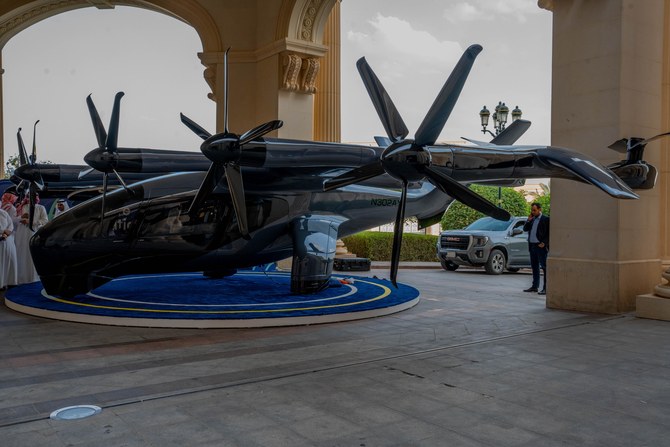
RIYADH: Saudi Arabia’s aviation sector received a major boost with over 100 agreements, exceeding SR75 billion ($20 billion), signed during the first two days of the Future Aviation Forum.
The Riyadh event saw the signing of 102 memorandums of understanding and deals, ranging from aviation services to aircraft procurement, cargo and logistics services, and advanced air mobility.
Abdulaziz Al-Duailej, president of the General Authority of Civil Aviation, said that the outcomes of the forum have exceeded all expectations.
“Over the first and second days, agreements, deals, and partnerships were established that will work toward enhancing global aviation connectivity. This underscores the international confidence in the Saudi civil aviation system and its capability to take on a leading role in this pivotal sector,” said Al-Duailej.
The most significant agreement was signed between the Saudia Group and Airbus for an order to buy an additional 105 A320neo family planes, marking the largest aircraft deal with the European firm in the Kingdom’s history.
The $19 billion deal, which includes A320neo and A321neo models, will see the aircraft distributed between Saudia and flyadeal, the group’s low-cost carrier.
Meanwhile, Saudi oil giant Aramco signed a deal with Bombardier for the purchase of two new super mid-sized Challenger 3500 business jet aircraft, with delivery scheduled for 2025 and 2026.
Additionally, BAE Systems inked a deal with the Saudi Academy of Civil Aviation to exchange experience in aviation science training.
Other agreements included a five-year contract signed between Saudia Cargo and Saudia Technic to lease up to 8,474 sq. m. within the Saudia Technic premises located in King Abdulaziz International Airport, MRO Village.
The deals also involved NEOM agreeing with Saudia Technic to engage in future discussions and collaboration in the field of aircraft maintenance, repair, and overhaul of heavy-lift Uncrewed Air System, or UAS, and passenger electric vertical take-off and landing, known as eVTOL, aircraft.
Matarat Holding Co. and the Local Content and Government Procurement Authority agreed to foster collaboration to enhance opportunities and potential for the development and advancement of local content.
Additionally, Dammam Airport Co. signed a consulting service contract with Hill International to manage DACO projects. It also sealed a cooperation agreement with the Bahrain Airport Co. Furthermore, it inked a training MoU with the Gulf Aviation Academy.
The agreements also included Saudi Arabia signing air service deals with Mozambique, Cambodia, Eswatini, and Brunei, as well as Romania, Malawi, and Belize. Additionally, the Kingdom signed similar deals with Kiribati, Grenada, Lithuania, and Sao Tome and Príncipe, as well as Salvador and Albania.
The forum witnessed a strong turnout, with over 30 ministers, 77 leaders of civil aviation authorities, CEOs from airlines worldwide, and 7,000 industry experts and leaders from over 120 countries.
During the forum, GACA unveiled the inaugural edition of the “State of Aviation” report, showcasing the sector’s contribution to the Kingdom’s economy, totaling $53 billion, and its role in generating 958,000 jobs across different regions.
GACA also hosted the first exhibition aimed at facilitating investment in the Saudi aviation sector, with a focus on the advanced air mobility pavilion being among the exhibition’s prominent pavilions.
Qatar issues green bonds worth $2.5bn
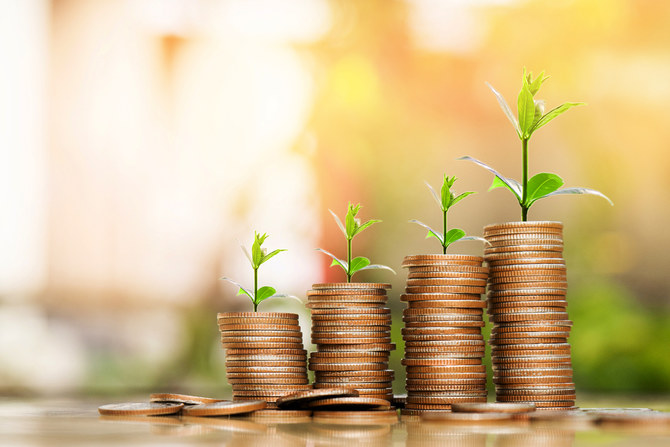
RIYADH: Qatar has issued green bonds in two tranches totaling $2.5 billion, according to official data.
Citing a release from the International Financing Review, Reuters reported that the operation is the Gulf state’s first external debt issuance in four years.
According to the IFR report, Qatar sold five-year offerings worth $1 billion with a yield of 30 basis points above US treasury bonds, and ten-year debt securities worth $1.5 billion with a yield of 40 basis points.
This comes several months after global professional services network KPMG encouraged the Gulf country to issue green bonds and adopt sustainable financing mechanisms, saying that this step would help the country achieve its sustainability goals.
The report also showed that Qatar reduced the initial indicative rate to 70 basis points over US treasury bonds for five-year debt securities and 80 basis points over US treasury bonds for 10-year offerings after receiving total orders exceeding $10.9 billion.
On another note, new data revealed that in the first quarter of 2024, Qatar recorded a merchandise trade balance surplus of 53.2 billion Qatari riyals ($14.6 billion), down from 68.4 billion riyals in the same quarter last year.
Issued by the country’s National Statistics Center, the analysis also disclosed that the value of Qatar’s total exports, including foreign sales of domestic goods and re-exports, amounted to 87.6 billion riyals, reflecting an 8.6 percent drop compared to the corresponding period in 2023.
On the other hand, during the same period, the value of Qatar’s imports stood at 34.4 billion riyals, reflecting a 25.4 percent surge in comparison to the first quarter of 2023.
When asked about the issuance of external debt in January, Qatar’s Finance Minister Ali Al-Kuwari, said: “We’re ready to do it very soon.”
Speaking to Bloomberg Television on the sidelines of the World Economic Forum in Davos at the time, the official highlighted that Qatar is “not hungry for money,” but it will pursue the issuance “mainly to send a strong statement” in combating climate change.
One of the world’s biggest producers of liquefied natural gas, Qatar has not issued eurobonds since early 2020, when it sold $10 billion of debt.
In 2022, the Gulf state’s central bank announced plans to implement strategic actions, including facilitating green bond issuance and advancing cooperation with the Qatar Development Bank, to promote diversification efforts. The aim is to fund projects to reduce carbon and other planet-warming emissions.
Saudi Arabia, China explore private sector investment opportunities during Beijing meeting
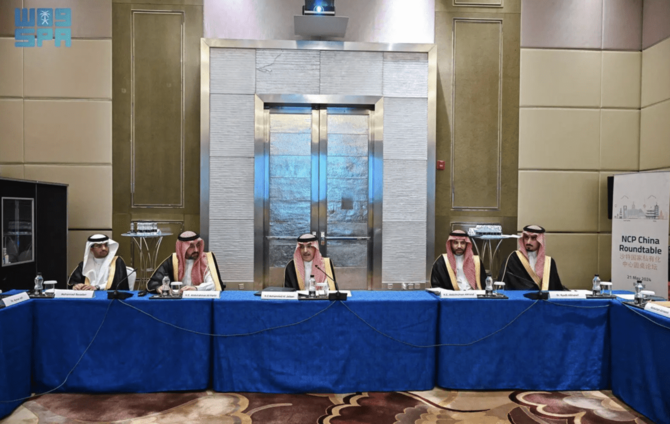
RIYADH: Chinese participation in Saudi Arabia’s private-sector projects is set to increase as the Kingdom’s Finance Minister Mohammed Al-Jadaan held meetings with top officials in Beijing.
Al-Jadaan, who is also the chairman of the National Center for Privatization & PPP, led a roundtable meeting with senior officials of Chinese companies in cooperation with the Industrial and Commercial Bank of China to discuss partnership opportunities.
In his opening address, the finance minister emphasized the depth of the bilateral relationship between the two nations, highlighting the trust and ongoing collaboration across diverse sectors, the Saudi Press Agency reported.
He revealed that the NCP has so far awarded over 60 privatization and partnership contracts in eight key sectors since its establishment, totaling a capital investment exceeding $10 billion.
Al-Jadaan also highlighted the NCP’s proactive measures in fortifying the ecosystem, including the adoption of privatization laws and complementary statutory frameworks aimed at expediting the implementation of PPP projects.
During the meeting, participants emphasized the potential for PPP - public private partnership – ventures within the infrastructure sector, outlining pathways for companies and investors to engage in these initiatives across diverse domains. Special focus was placed on construction, transportation, water management, and airport development.
At the close of the meeting, the minister commended the ICBC’s role in bolstering the NCP’s efforts to showcase privatization and partnership opportunities to Chinese investors and firms.
NCP plays a key role in facilitating the privatization program, a key priority outlined in the realization of the Saudi Vision 2030, according to its website.
The center assists in drafting regulations, establishing frameworks, and preparing government assets and services for privatization. Additionally, it is developing the privatization pipeline, proposing sectors and government assets and services for potential improvement through private sector involvement.
In 2023, the NCP unveiled its privatization and PPP pipeline, featuring 200 approved projects spanning 17 sectors. This initiative was in alignment with the objectives of Vision 2030, aiming to elevate the private sector’s contribution to the gross domestic product from 40 percent to 65 percent by 2030.
As of the same year, the pipeline encompassed over $50 billion in investments, with an additional 300 projects under evaluation, signifying promising growth prospects.


